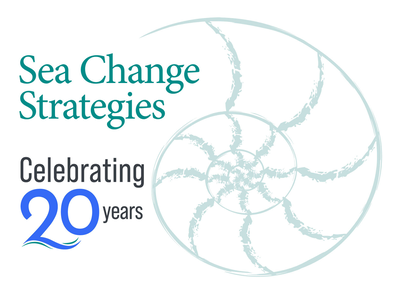If you’re certain you’re right, you’re probably wrong
When you feel certain you’re right, your brain gives you a cookie in the form of a hit of dopamine. It feels good to feel certain. It sucks to be uncertain. It sucks even more to feel wrong.
Here’s the problem: certainty is just an emotion. As supercoach and leadership guru Jennifer Garvey Berger puts it, “Your sense of being right about something, the sparkling clarity of certainty, is not a thought process, not a reasoning process, but an emotion that has nothing to do with whether you are right or not.”
Being right is one of the cognitive glitches that Jennifer calls “mindtraps.” These are the nearly automatic ways we shortcut reality in service to our sense of self and to our identity. Those shortcuts help us navigate our complex fast-moving lives, but they also get us into trouble and lead to our being something other than our best selves.
We deeply, viscerally want to be right. And when someone challenges our rightness, we’re prone to go into fight or flight. How many times have you been in a fight with a loved one or a friend, and one of you suddenly says “wait, what are we fighting about?” That’s a clue one or both of you have been trapped.
Other traps are just as trappy: We love to feel in control and we get dysregulated when we feel like we’re not in control. We tell simple, semi-fictional stories about other people and their motivations and then we become attached to our own internal propaganda.
Jennifer: “It turns out that we can’t tell the difference between our opinion and the truth, and that shapes what we notice—and how we treat other people.”
Don’t feel guilty about this. It’s not your fault. It’s how our brains are wired. We evolved to live in a simpler world that no longer exists. In the hyper-complex world we do live in, these once brilliant survival strategies can really mess us up.
So what to do about the mindtrap of being right? Here are three ways out of the trap:
First, ask yourself “What do I believe and how could I be wrong?” The “what do I believe” part is important. It may unmask assumptions or biases you have that you are treating as capital T Truth. It’s an invitation to humility, not paralysis.
Second, tune your hearing. That need for rightness often arises in a conversation when we are, as Jennifer puts it, “listening to win.” Instead, consider listening to understand or listening to learn. By changing what you’re listening for, you can change everything.
Finally, learn to be ok with being wrong. Jennifer quotes author Kathryn Schulz: “Far from being a moral flaw, [being wrong] is inextricable from some of our most humane and honorable qualities: empathy, optimism, imagination, conviction, and courage. And far from being a mark of indifference or intolerance, wrongness is a vital part of how we learn and change.”
